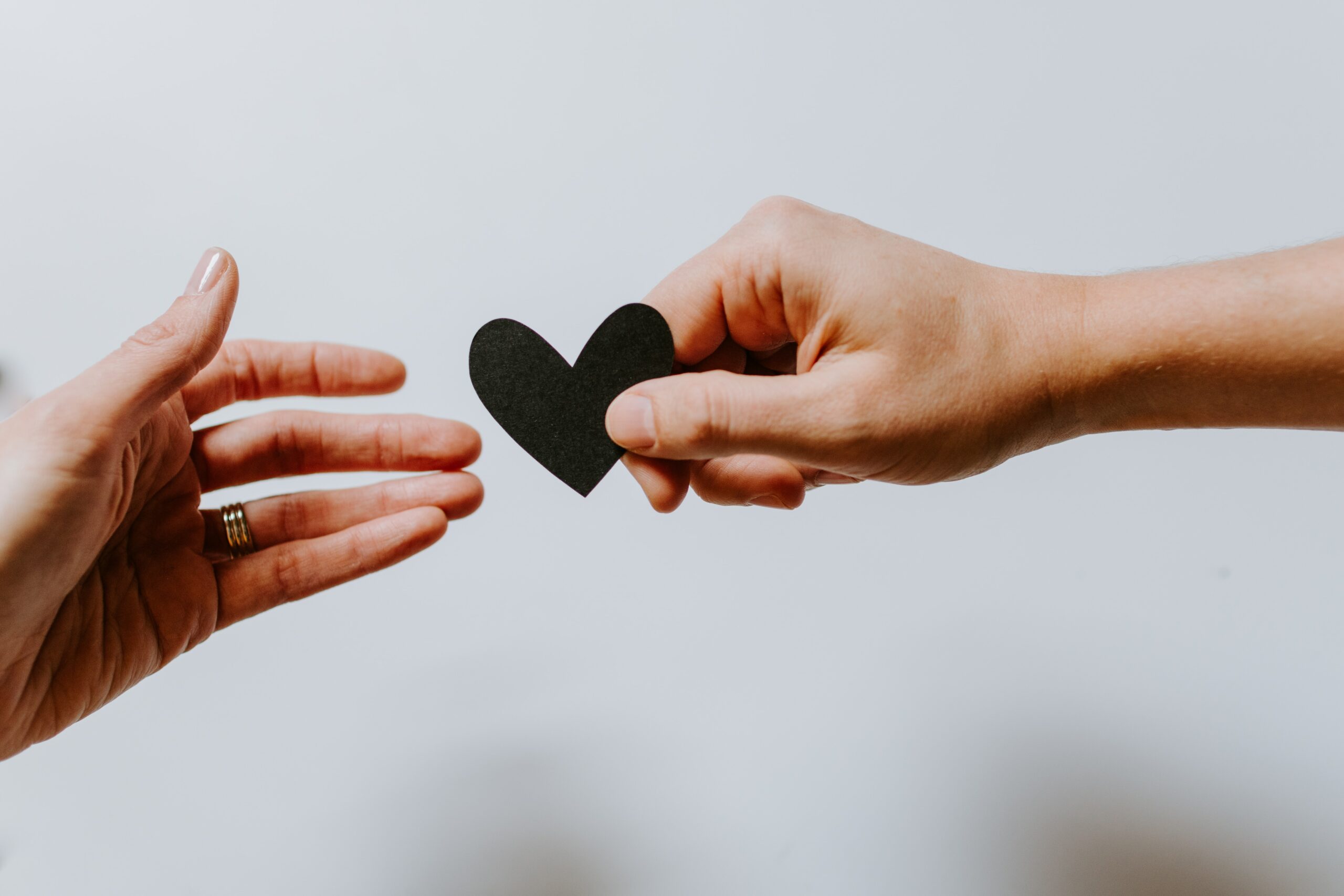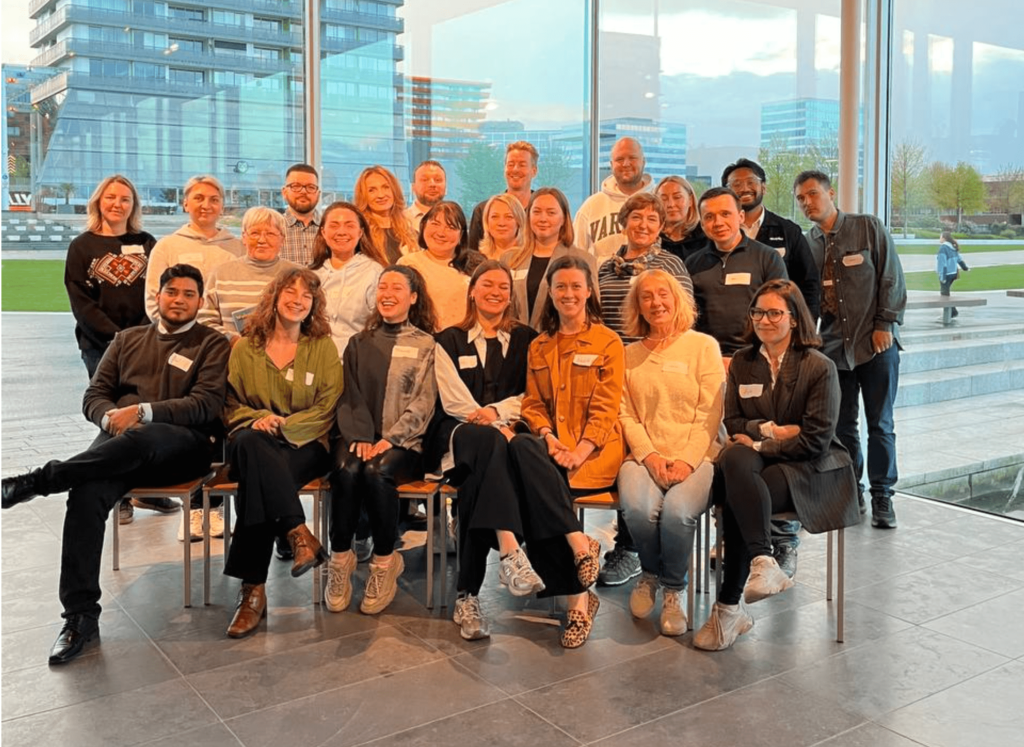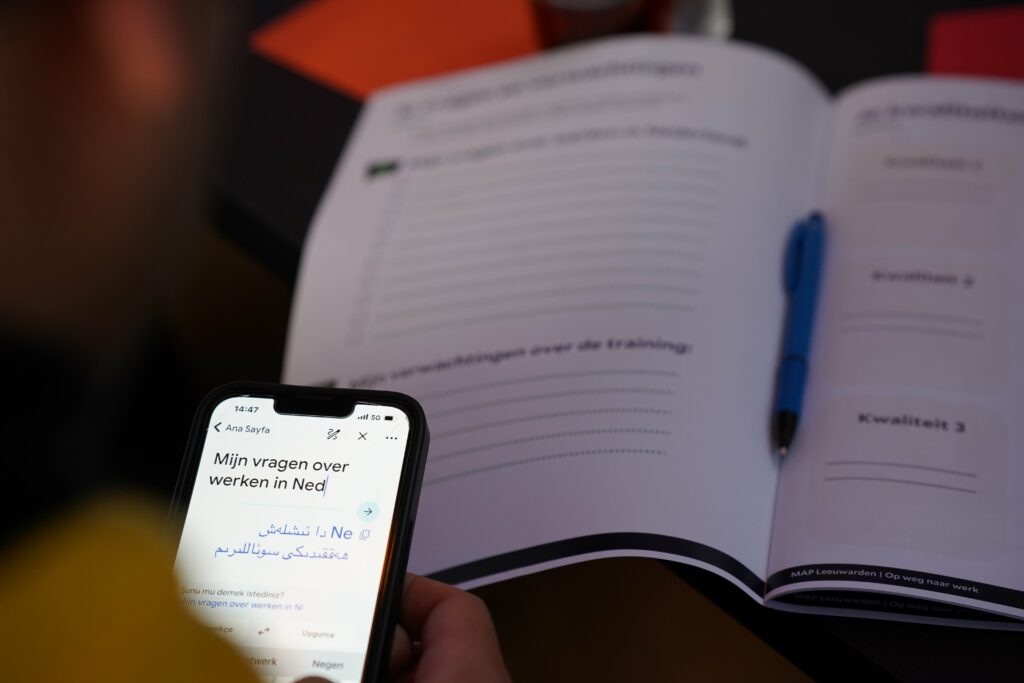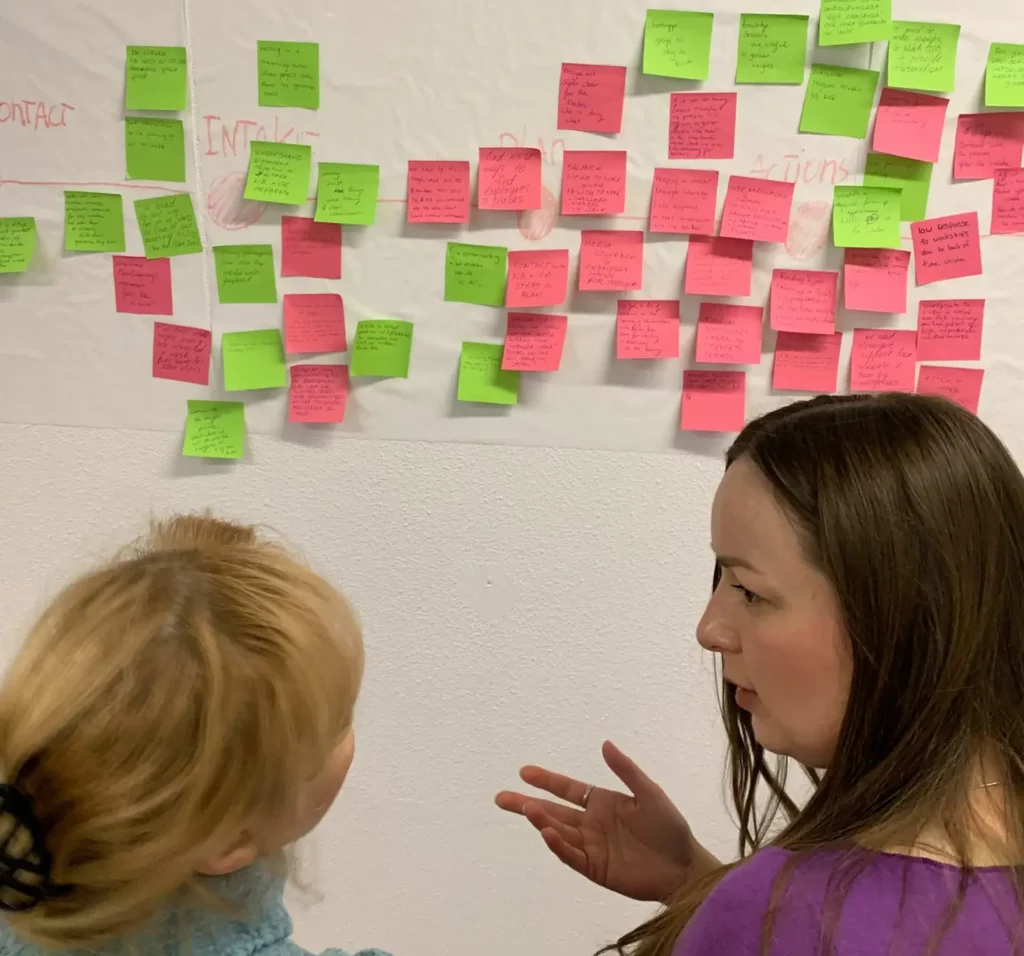After ten months of relocation, loss and hope, Ukrainians are more or less settled in their new homes in the Netherlands, with homes, jobs, insurance and education for their children. While this seems like a good time to recharge and relax, it is also a time when anxiety, depression, post-traumatic stress disorder and other mental illnesses can rear their heads.
By: Anna Bilenka, with thanks to Heleen Koudijs and Maria Shaidrova.
Increased need for mental support
Pharos is an organization committed to an inclusive society with equal opportunities for optimal health. They find that there is an increased need for mental health support during this settling-in period. In fact, they predict that the rate of mental illness may increase to 13-25% during this period. At the same time, not all Ukrainians (or other newcomers) ask for mental health support.
Why is it unusual for Ukrainians to seek psychological support?
Based on our research and observations, as well as the observations of mental health specialists, we found that Ukrainians often do not seek mental health care because of three main stigmas:
- The belief that "I am strong and can handle anything."
- The belief that "I'm not crazy, so I don't need help."
- The idea is that mental health care is expensive.
While it is true that Ukrainians are a strong and resilient nation (after enduring 11 months of nonstop war), it is also essential to recognize that mental health problems can affect not only the life of the individual, but also relationships, work and children.
Therapists working with Ukrainian newcomers divide these people into three groups:
- Those who are so exhausted from fighting that they can no longer accept help.
- Those who are too shy, humble or unaware that asking for help is an option.
- Those who are so desperate for help that they are willing to take any help offered.
Based on the groups of Ukrainian newcomers identified by therapists and the resources available in the Netherlands, Open Embassy determined 2 ways for Ukrainian newcomers to access mental health services: psychosocial support and professional psychological treatment based on trauma.
1. Psychosocial support
- a preventive-release service to treat trauma and diagnose it.
Since the beginning of the war in Ukraine, many European countries have developed support programs for Ukrainian newcomers, including mental health services. As a result, many organizations and volunteers are now willing to help Ukrainian people with any questions, whether they are war-related or not. To access this support, the person can register on the platform and briefly describe their situation. They will then receive a response from a specialist and can get 1-4 free sessions to address their request. Some suggested platforms are:
- Mansioglobalcollective
You can receive at least 5 free sessions in Ukrainian or Russian.
You can choose a specialist after registering on the platform. - Complicated.life
You can receive 4 free sessions of 40-60 minutes each online in English.
Prices for treatments are listed on the website, but you can use the hashtag #therapistforukraine to find specialists willing to offer free support to Ukrainian people. - World Psychologists
Briefly describe your request with your name and mobile number, and a therapist will contact you. - Therapy route
Choose a specialist based on their description and sign up. The specialist will then contact you. Sessions are free, but the specialist determines the number of sessions.
Access through local communities
Many Ukrainian newcomers to the Netherlands have formed local communities, which provide opportunities for networking, recreational activities for children and adults, and mental health support. To access this support, a person can join the group, follow announcements for therapeutic meetings, sign up and participate in activities such as yoga, art therapy and mindfulness-based stress reduction programs. For example, the UWRA_Netherlands community in Amsterdam is very active and offers a variety of therapeutic activities.
Volunteer psychologists
It is possible to receive Mental Health support from individual volunteer psychologists. Many specialists are willing to provide mental health support, but it is essential to carefully research their background, training and years of experience before beginning therapy. To receive support from an individual volunteer psychologist, you can send a brief message describing your concerns and the problems you want to address. You can then agree on a convenient time to meet online and the number of sessions the specialist will provide, free or for a fee.
Online spiritual support
Another option is online mental health support from local specialist groups. Some specialists have formed groups where people can request and receive direct mental health support. To access this support, you can follow the group's instructions.
One way to access mental health support from local specialist groups is to join the "Ukrainian Therapists in the Netherlands" group and submit your request. A specialist will then contact you via private messages to agree on a time and frequency for sessions and discuss the type of therapy that best suits you.
Participation in activities
Participating in activities other than work and problem solving can have a positive impact on mental health. These activities can be anything, such as yoga, drawing, light jogging or walking, or book clubs. It can be challenging to find time or energy to participate in these activities. Yet you will probably notice a positive effect on your mental health after just one activity. One way to find these types of activities is to join the Ukrainian community Kolo, which is based in Amsterdam and focuses on networking and support activities for Ukrainians. These activities include webinars on adjusting to a new society, book reviews, acupuncture sessions and much more.
"Volunteer services cannot be measured on their quality. As soon as specialists see more serious symptoms that can affect daily functioning, it is important to go to the family doctor, and be referred to insurance companies."
Maria Shaidrova, Opora Foundation.
2. Professional psychological treatment based on trauma
In the Netherlands, health care works differently than in Ukraine. One of the first steps to accessing medical treatment (other than over-the-counter medications such as paracetamol and supplements) is to visit a general practitioner. To do this, the person must call the physician's assistant, describe his or her condition and make an appointment with the doctor. During the appointment, the person can explain his or her situation and ask for professional psychological support.
For example, "I become hyperactive and can't sleep after being exposed to loud noises. I want therapy to help me become calmer." Unfortunately, the waiting time for professional therapeutic support can be up to six months and therapy is usually conducted in English, although Ukrainian-speaking specialists may be available.
"While the patient waits for specialized psychological support, the general practitioner may suggest going to a "POH" specialist for in-house psychological sessions. The waiting time for the POH psychologist is much shorter and often an intake is possible at short notice. GPs and POHs can also use interpreters for this service."
Heleen Koudijs, Pharos
Insurance
Mental health care is covered by basic insurance in the Netherlands, and patients can be referred to companies that specialize in treating trauma. Trauma Therapy Choice is one of them. In addition, the family doctor can also provide medical support in the form of antidepressants and tranquilizers to help the body cope during difficult times.
Quality of life
Mental health is just as important as physical health and can significantly affect the quality of our lives and those around us. Unfortunately, no one was prepared for war or its various challenges, so it is crucial to prioritize mental health and seek help when needed. Seeking psychological help is as normal as going to the dentist. It is also normal to change specialists if you feel uncomfortable or see no improvement after giving feedback.
We hope the resources in this article will help you find the support you need to adjust to your new situation. If you have additional questions about integration and adjustment in the Netherlands, please do not hesitate to contact us through our 24/7 help desk.
Photo by Kelly Sikkema on Unsplash





